Efimova Ready To Fight ‘Heyns & Co Compromise’ Ex-WADA Sleuth Says Is ‘Neither Ban Nor Punishment’
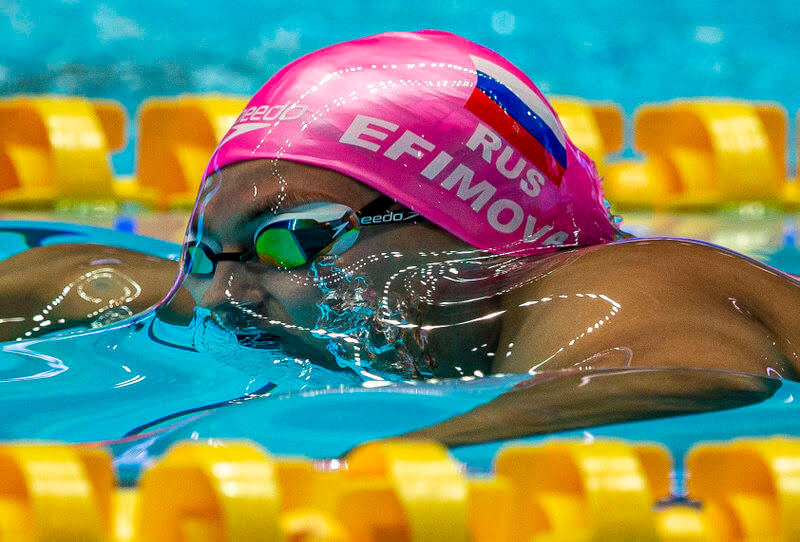
- Deja vu for Yuliya Efimova as lawyers placed on alert;
- Penny Heyns played a key role in watering down four-year anti-doping sanction on Russia described by one former investigator as “neither a ban nor punishment”;
- WADA Athletes’ Commission members say compromise could actually do further harm young Russian athletes
Jack Robertson, the man who led the original investigation on behalf of the World Anti-Doping Agency (WADA) into allegations that Russia had organised a state-sponsored doping program, has accused the global clean-sport watchdog of being a “Russian lapdog”.
His comment came in the wake of WADA’s decision to ban the Russian flag and anthem from international sport for four years but not Russian athletes who could “prove” innocence. It also coincided with a BBC report revealing the role of FINA Athlete Commission Chair Penny Heyns in watering down a blanket ban to allowing athletes who can “prove” their innocence into the Olympics, as was the case at Rio 2016.
Robertson, who quit his role at WADA in 2016 and became one of the organisation’s most biting critics, told ITV News :
“For all their continued blowhard threats of severe consequences, WADA has proven, yet again, it does not possess the necessary desire or fortitude to fulfil its mission as clean athlete watchdog. To be clear, the latest Russia decision is neither a ban nor punishment. I no longer hold WADA’s leaders as mere cowards, but also unmistakably intentionally biased.”
Swimming World Coverage Of The WADA Move On Russia:
- WADA ‘Has Names Of Suspicious Athletes’; What Russia Ban Means For Swimming
- USADA: WADA Weakness Is ‘Another Devastating Blow To Clean Athletes, Integrity of Sport & Rule Of Law’
- Russian Swimmers With No Taint Of Doping Free To Race On In The Swim League
- WADA Bans Russia (Not All Russians) From International Sport For 4 Years
- Commentary: Time For WADA To Blow Blanket-Ban Whistle On Game Of Russian Roulette With Clean Sport
Yuliya Efimova’s Lawyers Braced To Fight Against Any Ban
Deja vu for Yuliya Efimova as lawyers get set for challenge if needs be
Robertson’s view that the latest decision of WADA will not keep those towing a doping record out of the Tokyo 2020 Olympic Games coincided with Russian media reports that lawyers for breaststroke specialist Yuliya Efimova are braced to fight any attempt to bar her from the Games next year.
Efimova tested positive for 7-oxodehrdoepiandorosterone (7-keto DHEA OOCT) in a FINA out-of-competition test in California on October 13, 2013. She was served a 16-months suspension and lost the medals she claimed at the European short-course Championships in December 2013. The sanction included loss of gold and the cancellation of the world record she clocked in the 200m breaststroke.
Four years ago, Efimova was excluded from Rio 2016 and then reinstated in time to join a group of athletes towing doping records to their blocks who went down as the most booed and jeered swimmers in Olympic history.
Efimova claimed silver medals, in the 100 and 200m breaststroke, her rivalry with outspoken American Olympic champion Lilly King one of the biggest headlines from the Rio Games.
King wagged her finger at the Russian and, sitting next to her in the post 100m final press conference repeated that she did not believe Efimova should have been allowed to race at all given her record. Here’s how it panned out, with footage extending to the USA Gymnastics team success only a few weeks before the Larry Nassar scandal came to light:
Efimova was initially barred from Rio under an IOC mandate that any Russian with a previous doping violation would not be ineligible to compete as a result of Russia’s state-supported doping crisis.
On appeal to the Court of Arbitration for Sport (CAS), Efimova was reinstated to the Rio Games because the IOC ruling was “unenforceable”.
It is not yet clear what the latest ruling by WADA will actually mean for Russian athletes come Tokyo 2020. Efimova cannot ‘prove’ her innocence historically: she tested positive and served a 16-month suspension that ended just in time for her to race at Russian trails for a home World Championships in Kazan in 2015.
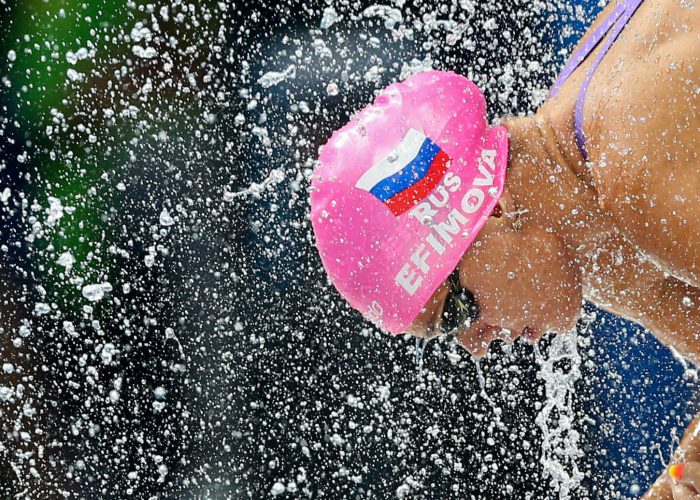
Yuliya Efimova – Photo Courtesy: SIPA USA
In a report at RT.com, Efimova, 27, is cited as saying: “I will behave in a similar way,” to 2016. She then repeated the driving-offence analogy that so angered her rivals at the 2015 World Championships and again at Rio 2016, alongside confirmation that she had expected the problems of 2016 to rumble on long after the Rio Games:
“I have already hired a lawyer. There is a rule that a person can’t be punished twice for the same offence. If you violate a driving code or instigated a brawl you will not be punished twice for that. I hope it will work, but I cannot be sure of [a positive outcome]. Right after my race at the Rio Games, I said that this doping controversy was not over, it was just the beginning, and we would have problems in the future. It was quite clear. And with every new year the situation is only getting worse and worse.”
Efimova also made the following point: “Yes, long ago I made a doping violation. But there are a great number of U.S. and European athletes who have a similar situation regarding doping, and they are competing without any restrictions. If you want to introduce those regulations, they must be equally applied to all athletes, not only Russian competitors.”
Robertson, among those pointing to parallels between 2016 and 2019, posed a question for WADA when he said:
“WADA says Russian athletes will be required to prove their doping innocence to compete this summer in Tokyo. Exactly how is this to be conducted WADA?! Pinky swears? This is sheer WADA propaganda and crap.”
Russia has been banned for four years from competing in all world events, this includes next year’s Olympics and the Qatar World Cup in 2022.
He added: “No athlete, Russian athletes included, can prove conclusively they are clean. Based on Russia’s doping track record clean athletes will once again be pitted against doped Russian athletes for Olympic podium positions.
“Clean athletes and Olympic ideals deserve better than what WADA is providing. Rather than Anti-Doping watchdog, a more appropriate label would now be ‘Russian lapdog’.”
Other Russian Responses:
Athletes Demanding Answers Of Their Guardians;
Boycott, Back To Spartakiads; Forward To CAS
Meanwhile, some sports and athletes in Russia are taking a different tack than Efimova. The Olympic boxing team “unanimously” rejected the latest WADA ruling, and said that if it not changed and if the Russian flag and anthem are barred, then they will boycott the Tokyo Games.
A flood of comments from athletes and others around the world and general social media comments in response would appear to suggest that a ‘boycott’ of Russian athletes would be welcome.
However, many Russian athletes are calling for home reform of the sports system and culture and calling out their guardians.
The reactions of Efimova and the boxers contrast with the voices of Russian athletes who are genuinely trying to find solutions. Alongside the whistleblowers who helped expose deep deception, these are the Russians, as reported by the Moscow Times, who are not pointing fingers at an outside world but want to see change at home:
“Totally not surprised about this outcome. Today is a very shameful day and I never believed the promises that everything will be OK. I will continue fighting for my own right to compete, even under a neutral flag. I am not planning to change my nationality. I am annoyed that athletes are alone in their fight and the heads of sport in our country are only willing to defend us on paper.” – Mariya Lasitskene, high jump World title 2015, 2017 and 2019
“We got what we deserved. We have so many former athletes in the State Duma, couldn’t they sort out this mess? I am with WADA on this one.” – Alexander Tikhonov, four-time Olympic biathlon champion
“There was systemized doping in Russia, I have no doubt about it. Someone should be punished for it. Russian sport could have restored its reputation if the people who started it all just went out and said: ‘Yes, I screwed up, please forgive me.’ But no one wants to take responsibility for this. In the end, everything is shifted on the poor athletes.” – Evgeniy Kafelinkov, Olympic tennis champion
More reaction:
- ‘We Got What We Deserved’: Russia Reacts to Doping Ban
- I Am a Russian World Champion and I Demand Answers – We chose not to learn from our mistakes – by Maria Lasitskene
Some officials appear yet to be deaf to their own athletes. The speaker of Russia’s upper house of parliament said Russia may now create an alternative to the Olympics in response to the WADA ruling.
“This ruling show the clear crisis in international sports institutions. I believe that Russia could host its own games at home,” Valentina Matvienko said in comments to the Interfax news agency, evoking memories of the old Soviet Spartakiads.
The official decision on whether to dispute the WADA sanctions will be made next week, on Thursday December 19, by the Russian anti-doping agency’s (RUSADA) supervisory board. Russian President Vladimir Putin, is among leading figures indicating that they would like to see the matter referred to the CAS.
In 2017, CAS overturned a decision by the IOC to ban Russian Sports Minister Vitaly Mutko for life. The decision was taken on the basis that Mutko “was not and is not an Olympic competitor, a member of an Olympic delegation, a referee or member of a jury, and does not hold any Olympic accreditation which might be withdrawn”.
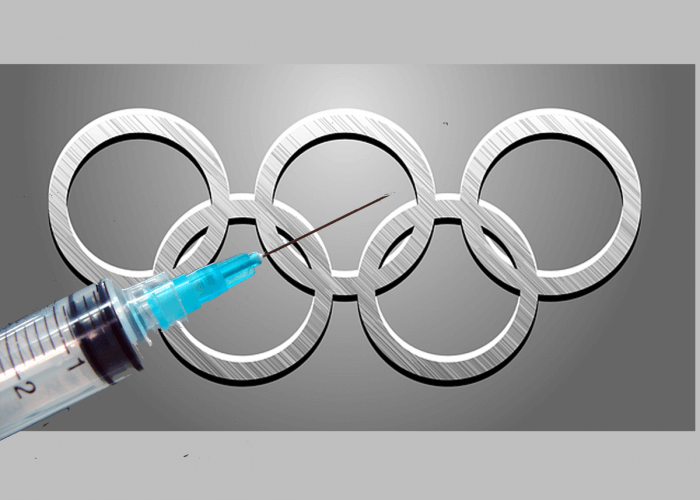
Doping at the heart of an Olympic Movement straining under the weight of a history it failed to deal with
Effectively, the IOC had no jurisdiction over Mutko, who was said by Russian whistleblower Dr. Grigory Rodchenkov, the former head of the Moscow Anti-Doping Laboratory, to have known about deception in the anti-doping process at the 2014 Sochi Winter Olympics.
Rodchenkov alleged that the Games on-site anti-doping laboratory had been mirrored by a hidden laboratory next door, with problem samples switched with clean samples through a “mouse-hole” in the wall hidden by a fake power point.
On July 16, 2016, Professor Richard McLaren (a Canadian law professor conducting the independent inquiry into Russia) submitted his first report, according to which there was evidence of a systematic and State-sponsored manipulation of the anti-doping control process in Russia before and after the Sochi Olympic Games. The CAS report also noted:
“On 9 December 2016, Professor McLaren submitted his second report, which reiterated its findings concerning the existence of an extensive doping programme at the Sochi Olympic Games, and concluded that there had been “a carefully orchestrated conspiracy, which included the complicity of Russian sports officials within the MofS [Ministry of Sport], CSP [Centre of Sports Preparation], Moscow based Sochi Laboratory personnel, RUSADA [Russian Anti-Doping Agency], the Russian Olympic Organising Committee, athletes, and the FSB [Federal Security Services]”.
The Backdrop & remaining Questions
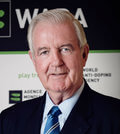
Sir Craig Reedie – Photo Courtesy: WADA
It was January this year when British lawyer Jonathan Taylor, the head of WADA’s Compliance Review Committee (CRC) warned Russia that it faced the “toughest possible sanctions” if there was evidence that overdue test laboratory data had been tampered with.
The sanction would include this: “… no Russian officials, athletes or support personnel will be permitted to participate in the Olympic or Paralympic Games.” In writing – to Russia with little love.
On Monday this week as WADA’s outgoing president Sir Craig Reedie drew criticism when he expressed doubts about whether sanctions actually worked, it became clear that the actual sanction would be a watered-down version of the sanction. That includes compromise of the kind that saw every Russian swimmer reinstated to Rio 2016 after a 10-year period in which Russians had the worst record, 25 positive tests (2005-2015).
Caveats, compromise and ‘kompromat’
The ruling delivered on Monday holds that athletes who can prove they are clean can compete under a neutral banner. That is precisely what happened for the 2018 Pyeongchang Winter Olympics, at which 168 Russians competed, some collecting a total of 17 medals just four years after the outrage of Sochi.
Beyond that, there is uncertainty about which events will and will not be covered by the ban on Russia hoisting international events. Euro 2020 and World Cup qualifying matches in football, the Sochi Grand Prix in Formula 1 – are not included in the sanction, for example, even though swimming events that could be roughly equated with such things would absolutely fall under the conditions of the ban under WADA Code definitions of “International Event” and “Major Event Organiser”.
A doping debate that’s divided opinion
In the camp of those who welcome the WADA move, is the UK Anti-Doping Agency (UKAD), which was granted the work of testing in Russia when RUSADA was serving a non-compliance ban. UKAD says the WADA decision strikes the right balance right between an appropriate punishment and the rights of innocent Russian athletes.
The US Anti-Doping Agency (USADA) and many athlete representatives slammed the WADA move as weak, ineffective and a move that failed clean athletes once more. USADA’s statement included:
“To allow Russia to escape a complete ban is yet another devastating blow to clean athletes, the integrity of sport and the rule of law. And, in turn, the reaction by all those who value sport should be nothing short of a revolt against this broken system to force reform.”
The leaderships of WADA and the IOC have been accused in some quarters of being too close to powerful Russian interests.
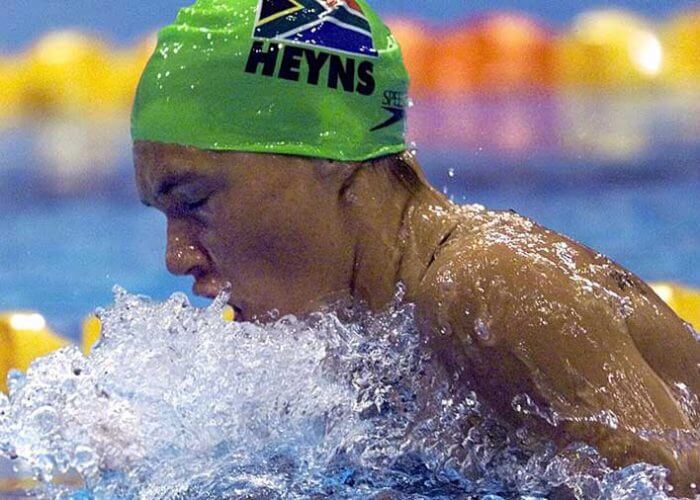
Penny Heyns – Photo Courtesy: The South African Swim History Project
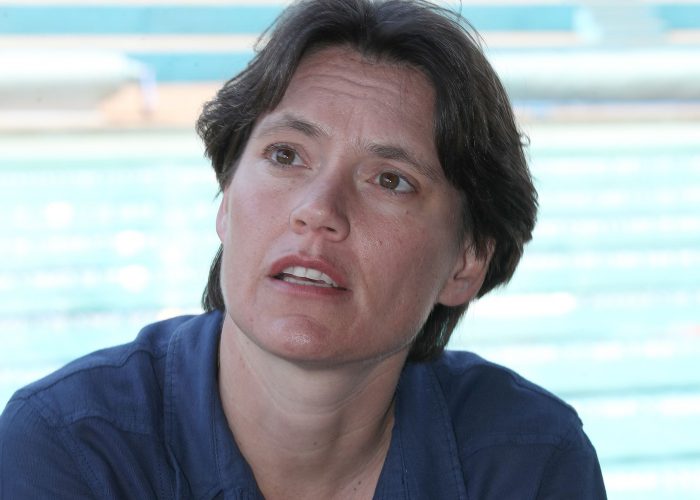
Penny Heyns – Photo Courtesy: Swimming South Africa
Taylor is reported by the BBC to be dismayed at the questioning of his integrity and stands by his recommendation. He and his WADA committee colleagues listened Penny Heyns’ plea for young Russian athletes.
Former South African double Olympic champion (100, 200m breaststroke) of 1996 and member of several committees including the chair of the FINA Athletes’ Committee, Heyns is a member of Taylor’s panel.
Criticised by the likes of Adam Peaty this year for failing to consult athletes and raising only issues that were acceptable to FINA’s leadership, Heyns argued in WADA discussions that a blanket ban would be unfair on younger Russian athletes.
That thought can also be extended to these four counter arguments:
- of the 25 positive tests registered 2005-2015, more than a third were returned by teenagers, while almost all were returned by swimmers who had been medal-winning members of Russian youth teams
- none of those who claimed 22 medals to top the table at the European short-course championship in Glasgow last week grew up in swimming in days since the exposure of the Russian scandal, while some of the younger members of the national team share long-established coaches in programs with the older well-established athletes.
- reaching for ‘unfair to ban younger athletes who are presumed ‘innocent’ does not deal with why it is unfair to allow dopers back on their blocks as a result of such leniency.
- is WADA confident that young Russian athletes are no longer working under the influence of coaches and doctors who have been there for decades?
Swimming World has put those issues and questions to Penny Heyns for comment and will bring you her answers if and when we get any.
Why Heyns’ Argument & WADA’s Leniency Could Hurt Young Athletes
Adam Pengilly, a British member of WADA’s athlete commission, explained to the Guardian why Heyns’ argument doesn’t work in practice and can actually lead to the abuse of young athletes:
“Nothing has worked. I’ve been reluctant to call for a full ban but until the system changes athletes will continue to get exploited in Russia. I have been told by a Russian friend in sport that it is a collective system and the majority of those who were around five to 10 years ago are still there. So the 12-year-old girl who wants to be a 1500m runner will probably be at major risk of having to be pushed into doping later in her career.”
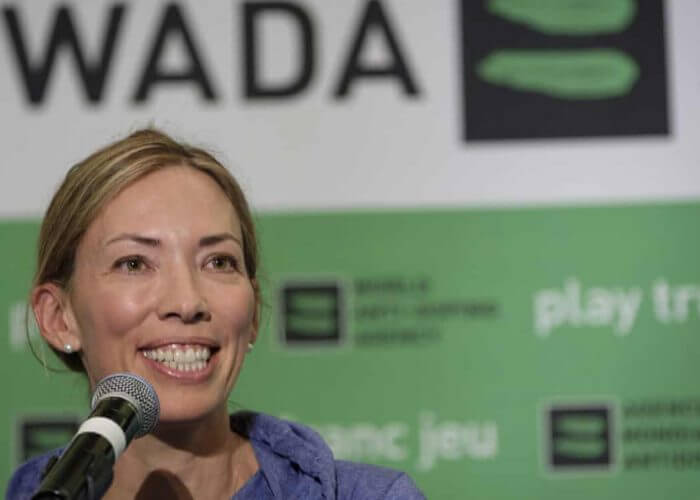
Beckie Scott – former WADA Athletes’ Chair Photo Courtesy: WADA
Beckie Scott, a former cross-country skier from Canada who recently left the chair of the WADA Athletes’ Commission, weighed in with: “It just feels like an uphill battle,” she said. “There is a real disconnect between the athlete commission and leadership at WADA.
“The commission is really dedicated and passionate about protecting clean athletes. However, at a time when Wada’s Executive Committee finally had the power and authority to take legal action against such blatant corruption from Russia, it chose not to. It is surreal.”
Rob Koehler, head of the athlete-led movement Global Athlete and former WADA deputy general, said WADA had taken a backward step and angered a significant number of leading sportsmen and women:
“It is a step backwards compared to where we were in 2016, when WADA recommended a complete ban on Russia for the Olympics and Paralympics. Reedie now says that blanket bans don’t work – but the example of South Africa under apartheid suggests otherwise.”
Worrying consequences would flow from weakness, Koehler predicted: “I think the credibility of WADA had already deteriorated but this decision has made it worse.”
“The problem is that Russia is powerful. They host events and there is a lot of Russian representatives on various international sports boards, so their influence is wide and their tentacles are everywhere.”
Dan Roan summed up the feelings of many when he opined in a BBC analysis:
“But after this latest attempted cover-up of the gravest doping scandal in the history of sport, it is difficult to understand when, if not now, WADA will ever issue the ultimate sanction of an outright ban.”
Contradiction in the System
Sir Craig Reedie, outgoing WADA president, told the BBC’s Alex Capstick this week:
“I’m not sure bans in the history of sport actually work very well.”
Those words coincide with a the Olympic “Take the Podium” program in which athletes denied their rightful reward and moment of celebration because of an athlete subsequently proved to have cheated are afforded a podium ceremony. The program described itself as:
“Take the Podium: Clean athletes are finally awarded their rightful Olympic medal following the disqualification of doped athletes.”
The BBC today lists a number of cases of medals gained long after they were won, including:
- John Jackson, Bruce Tasker, Stuart Benson and Joel Fearon – former members of Team GB’s four-man bobsleigh team, who after five years were last month finally awarded their bronze medals from Sochi 2014 where they finished fifth behind two Russian crews later disqualified for doping.
- Retired javelin thrower Goldie Sayers who had to wait 11 years before receiving her bronze medal from the 2008 Olympics this summer after Russian Mariya Abakumova was stripped of silver after a re-analysis of a sample tested positive.
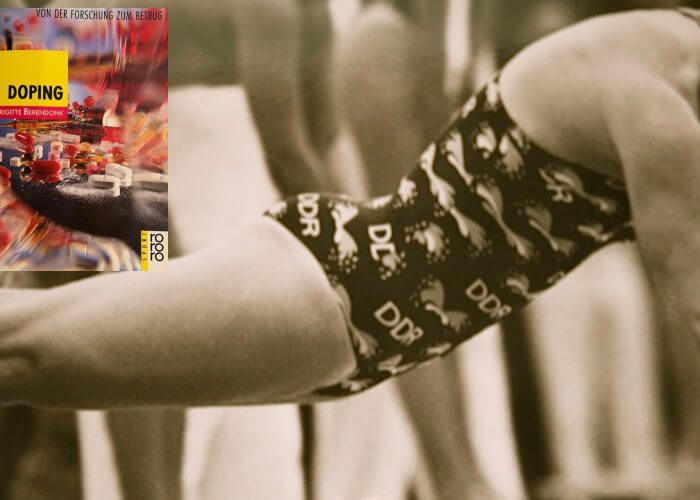
What suited the GDR – and how Brigitte Berendonk told the story of systematic doping and State Research Plan 14:25 – Photo Courtesy: NT Archive/Craig Lord
The issue runs much deeper back in history. Given the overwhelming evidence of State Plan 14:25, complete with names and dosages of steroids given to specific German Democratic Republic athletes, shoals of swimmers in the mix over the best part of 20 years, will those beaten into silver, bronze, off the podium and out of the final finally be recognised too?
Sir Craig’s words, meanwhile, came in for serious criticism. Former British Paralympian Vicki Aggar. Members of the WADA athlete committee, described Reedie’s comments as “laughable and disrespectful”. She told the Guardian newspaper she is now considering resigning in protest at the latest WADA decision.
Update: One day on and Aggar has in fact quit the committee in protest.
Aggar told the same Guardian paper that allowing Russians still to compete at Euro 2020 made “a mockery of the system and was embarrassing to WADA”. She added:
“There comes a time when you think, ‘Is it worth associating myself with such a spineless organisation?’ And I think it is for everyone on the committee to have a think about where they stand It is not in our DNA to give up and I have stuck around to support our chair Beckie Scott. But it is just a constant battle. And when you are constantly not being listened to – and constantly berated – there comes a time when you think should I put my efforts elsewhere? Without making knee-jerk reactions I think a lot will happen in the next 48 hours.”
She is far from being alone who believe that there can be no compromise or pleas for mercy in the circumstances: the Moscow laboratory data at the heart of the manipulation scandal involves tampering with evidence that is now jeopardising the prosecution of up to 145 cases of suspected Russian cheating.
Questions pending include:
- How can that massive deception result in a qualified sanction?
- How many Russians will be in Tokyo?
- Will they be booed and jeered to their blocks again?
- What will their team name be?
- Will it all come to nothing if Russia wins a CAS appeal?
- Will new athlete representative bodies take up funding said to be on offer to help them sue the IOC, WADA and others for allowing dopers to return to competition?
- What will become of an anti-doping system under constant fire on all sides?



